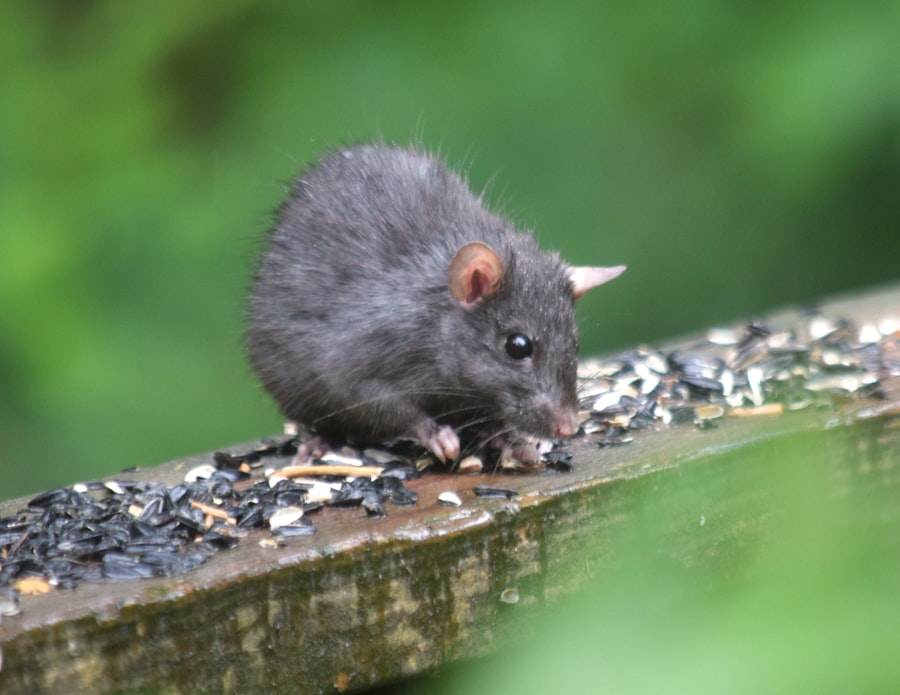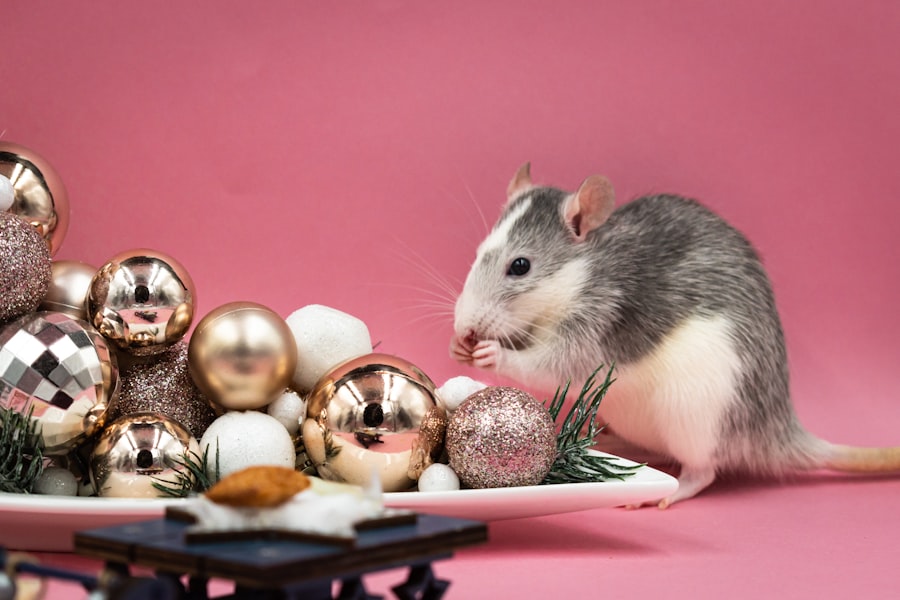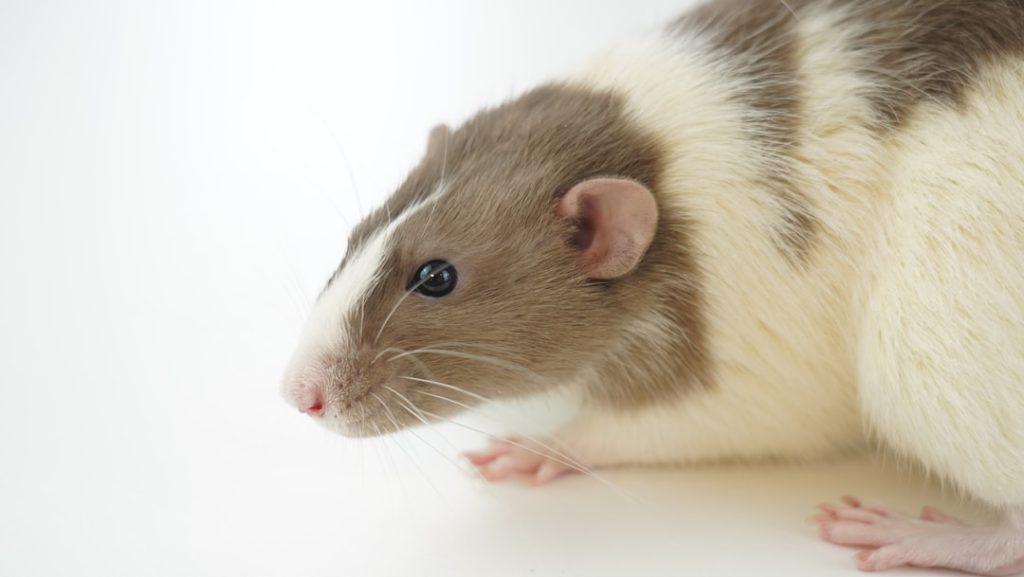Rats are highly intelligent and adaptable rodents known for their ability to thrive in various environments. These prolific breeders can produce up to 12 litters annually, with each litter containing 20 or more offspring. Rats are primarily nocturnal, being most active during nighttime hours and seeking shelter during the day.
Their excellent climbing abilities allow them to access chicken coops through small openings or structural gaps. As omnivores, rats consume a wide variety of food sources, including chicken feed, eggs, and even young chicks. Understanding rat behavior is essential for effectively preventing and controlling infestations in chicken coops.
The adaptability of rats makes them potential pests in chicken coops if not properly managed. Their ability to squeeze through small openings necessitates thorough coop security measures. Due to their rapid reproduction rates, a minor rat presence can quickly escalate into a significant infestation if left unaddressed.
By comprehending rat behavior, chicken owners can implement proactive strategies to prevent infestations and safeguard their flocks from potential harm.
Table of Contents
- 1 Securing the Chicken Coop
- 2 Proper Food Storage
- 3 Regularly Cleaning the Coop
- 4 Implementing Natural Deterrents
- 5 Using Traps and Baits
- 6 Seeking Professional Help
- 7 FAQs
- 7.1 What are some natural ways to keep rats away from chickens?
- 7.2 What are some physical barriers to keep rats away from chickens?
- 7.3 Are there any commercial products available to keep rats away from chickens?
- 7.4 Why is it important to keep rats away from chickens?
- 7.5 What are some signs that rats may be present in the chicken coop?
Key Takeaways
- Rats are nocturnal and highly adaptable creatures, making them difficult to control.
- Securing the chicken coop with strong materials and sealing any potential entry points is crucial in preventing rat infestations.
- Proper food storage in sealed containers can help deter rats from entering the coop in search of food.
- Regularly cleaning the coop and removing any potential nesting materials can help prevent rats from establishing a presence.
- Implementing natural deterrents such as mint, garlic, and predator urine can help repel rats from the coop area.
- Using traps and baits strategically can help control rat populations, but it’s important to use them safely and responsibly.
- Seeking professional help from pest control experts may be necessary for severe rat infestations that cannot be managed independently.
Securing the Chicken Coop
Conducting a Thorough Inspection
This can be achieved by conducting a thorough inspection of the coop and sealing any potential entry points such as gaps in the walls, windows, doors, and vents. It is also important to ensure that the coop is constructed with sturdy materials that rats cannot easily chew through.
Installing Physical Barriers
Additionally, installing hardware cloth or wire mesh around the perimeter of the coop can help prevent rats from burrowing underneath and gaining access to the chickens.
Maintaining a Clean Surrounding Area
In addition to physical barriers, it is important to keep the surrounding area clean and free of debris that could provide hiding spots for rats. This includes removing any piles of wood, brush, or other clutter that could serve as a potential nesting site for rats.
By securing the chicken coop and its surroundings, chicken owners can effectively prevent rats from gaining access to their flock and food source.
Proper Food Storage

Proper food storage is crucial in preventing rats from being attracted to the chicken coop. Rats are opportunistic feeders and will readily consume chicken feed, grains, and even eggs if given the chance. To prevent infestations, it is important to store chicken feed in secure containers that rats cannot easily access.
This includes using metal or plastic bins with tight-fitting lids to prevent rats from chewing through and accessing the feed. It is also important to clean up any spilled feed promptly and ensure that feeders are raised off the ground to prevent rats from accessing them. By properly storing chicken feed and minimizing access to food sources, chicken owners can effectively deter rats from infesting their coop.
Regularly Cleaning the Coop
Regularly cleaning the chicken coop is essential in preventing rat infestations. Rats are attracted to areas with ample food and nesting materials, making a dirty coop an ideal environment for them to thrive. By regularly removing soiled bedding, droppings, and spilled feed, chicken owners can minimize the appeal of their coop to rats.
In addition to cleaning the coop, it is important to maintain good sanitation practices in the surrounding area. This includes keeping the area around the coop free of debris and ensuring that garbage cans are tightly sealed to prevent rats from accessing food waste. By regularly cleaning the coop and its surroundings, chicken owners can effectively deter rats from infesting their flock.
Implementing Natural Deterrents
Implementing natural deterrents can be an effective way to prevent rats from infesting the chicken coop. This can include planting mint, lavender, or other strong-smelling herbs around the coop, as rats are known to be repelled by these scents. Additionally, keeping cats or dogs as pets near the coop can help deter rats from approaching the area.
Another natural deterrent is the use of predator urine or feces around the perimeter of the coop, as this can signal to rats that there is a potential threat in the area. By implementing natural deterrents, chicken owners can effectively discourage rats from infesting their coop without resorting to harmful chemicals or traps.
Using Traps and Baits

Strategic Trap Placement
To maximize the effectiveness of traps, it’s crucial to place them in areas where rats are most active. This typically includes areas around feeding stations, along walls and pathways, and other high-traffic zones.
Baits: An Additional Control Method
In addition to traps, baits can be used to attract and eliminate rats. When using baits, it’s vital to select products specifically designed for rat control and to follow all safety precautions when handling and placing them.
Effective Rat Control
By combining traps and baits in a strategic and targeted approach, chicken owners can effectively control rat infestations in their coop and protect their flock from the dangers of rat-borne diseases.
Seeking Professional Help
In some cases, rat infestations in chicken coops may require professional assistance to effectively control. Pest control professionals have the knowledge and experience to identify and address rat infestations using safe and effective methods. They can also provide guidance on preventive measures to minimize the risk of future infestations.
Additionally, pest control professionals can help chicken owners assess potential entry points and weak spots in the coop that may be contributing to rat infestations. By seeking professional help, chicken owners can ensure that rat infestations are effectively controlled without putting their flock at risk. In conclusion, understanding the behavior of rats is crucial in effectively preventing and controlling infestations in chicken coops.
By securing the coop, properly storing food, regularly cleaning the coop, implementing natural deterrents, using traps and baits, and seeking professional help when necessary, chicken owners can effectively protect their flock from rat infestations. With proactive measures and diligent management practices, rat infestations can be effectively controlled, allowing chickens to thrive in a safe and healthy environment.
If you’re looking for tips on how to keep rats away from your chickens, you may also be interested in learning about the best ways to turn a shed into a chicken coop. This article from Poultry Wizard provides valuable information on how to repurpose a shed to create a safe and comfortable living space for your feathered friends. Check it out here.
FAQs
What are some natural ways to keep rats away from chickens?
Some natural ways to keep rats away from chickens include keeping the chicken coop clean and free of food scraps, using strong-smelling herbs and plants like mint and lavender, and using predator urine or hair around the coop to deter rats.
What are some physical barriers to keep rats away from chickens?
Physical barriers to keep rats away from chickens include using hardware cloth to cover openings in the coop, keeping feed in metal containers with tight-fitting lids, and keeping the coop elevated to prevent rats from burrowing underneath.
Are there any commercial products available to keep rats away from chickens?
Yes, there are commercial products available such as rat traps, electronic repellents, and rodent-proof feeders that can help keep rats away from chickens.
Why is it important to keep rats away from chickens?
It is important to keep rats away from chickens because rats can carry diseases that can be harmful to both chickens and humans. Additionally, rats may steal chicken eggs and feed, causing a loss of resources for the chickens.
What are some signs that rats may be present in the chicken coop?
Some signs that rats may be present in the chicken coop include droppings, gnaw marks on feed containers or coop structures, and burrows or tunnels near the coop.
Meet Walter, the feathered-friend fanatic of Florida! Nestled in the sunshine state, Walter struts through life with his feathered companions, clucking his way to happiness. With a coop that’s fancier than a five-star hotel, he’s the Don Juan of the chicken world. When he’s not teaching his hens to do the cha-cha, you’ll find him in a heated debate with his prized rooster, Sir Clucks-a-Lot. Walter’s poultry passion is no yolk; he’s the sunny-side-up guy you never knew you needed in your flock of friends!







